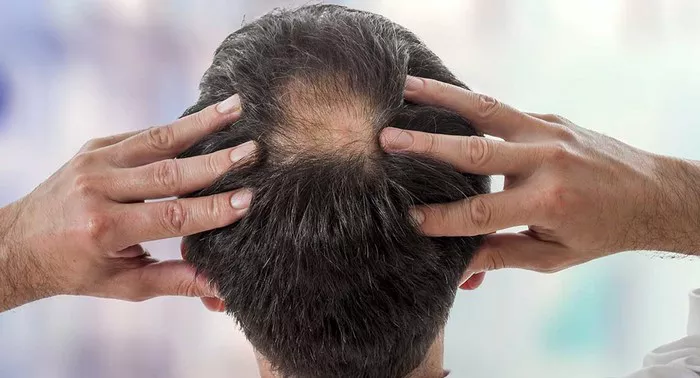Hair loss can be a distressing experience for anyone, regardless of age or gender. Whether you’re noticing a few extra strands in the shower drain or experiencing significant thinning, addressing the issue promptly is essential to prevent further loss and maintain healthy hair. While some degree of hair shedding is normal, excessive hair loss can be indicative of underlying health issues or lifestyle factors. In this comprehensive guide, we’ll explore various effective strategies to help you understand what causes hair loss and what you can do to stop it.
Understanding Hair Loss: Causes and Types
Before diving into solutions, it’s crucial to understand the root causes of hair loss. Hair loss, also known as alopecia, can result from a variety of factors, including genetics, hormonal changes, medical conditions, and lifestyle choices.
1. Genetics: One of the most common causes of hair loss is hereditary factors. Androgenetic alopecia, also known as male or female pattern baldness, is a genetic condition that affects both men and women, leading to gradual hair thinning and eventual baldness.
2. Hormonal Changes: Hormonal fluctuations can also contribute to hair loss. For example, during pregnancy, childbirth, or menopause, women may experience temporary hair shedding due to changes in hormone levels.
3. Medical Conditions: Certain medical conditions can trigger hair loss as a secondary symptom. These may include thyroid disorders, autoimmune diseases like alopecia areata, scalp infections, and nutritional deficiencies.
4. Lifestyle Factors: Poor lifestyle choices such as excessive stress, improper diet, smoking, and excessive use of hairstyling tools can weaken the hair follicles and contribute to hair loss.
Effective Strategies to Combat Hair Loss
Fortunately, there are numerous strategies you can implement to address hair loss and promote hair health. From lifestyle modifications to medical interventions, finding the right approach requires a comprehensive understanding of your unique situation.
1. Maintain a Balanced Diet: A nutritious diet plays a crucial role in maintaining healthy hair. Ensure your diet includes a variety of vitamins, minerals, and proteins essential for hair growth, such as vitamin A, vitamin E, vitamin D, biotin, iron, and zinc. Incorporate foods like leafy greens, eggs, nuts, fish, and fruits into your meals.
2. Stay Hydrated: Adequate hydration is essential for overall health, including hair health. Drink plenty of water throughout the day to keep your body and scalp hydrated, promoting optimal conditions for hair growth.
3. Manage Stress: Chronic stress can disrupt hormonal balance and contribute to hair loss. Practice stress-reducing techniques such as meditation, yoga, deep breathing exercises, or engaging in hobbies you enjoy to help manage stress levels effectively.
4. Avoid Harsh Chemicals: Minimize the use of harsh chemicals on your hair, such as frequent dyeing, bleaching, or perming. These treatments can damage the hair shaft and weaken the follicles, leading to increased hair loss over time.
5. Be Gentle with Your Hair: Handle your hair with care to prevent unnecessary breakage and damage. Use a wide-tooth comb to detangle wet hair gently, avoid tight hairstyles that pull on the hair follicles, and opt for soft, seamless hair accessories.
6. Practice Scalp Massage: Regular scalp massage can improve blood circulation to the hair follicles, promoting hair growth and strengthening the roots. Use gentle circular motions with your fingertips to massage the scalp for a few minutes each day.
7. Consider Supplements: In some cases, dietary supplements may be beneficial for promoting hair growth and preventing hair loss. Consult with a healthcare professional to determine if supplements such as biotin, iron, or omega-3 fatty acids are suitable for you.
8. Seek Medical Advice: If you’re experiencing significant or persistent hair loss, it’s essential to consult with a dermatologist or trichologist. They can assess your condition, identify any underlying causes, and recommend appropriate treatment options, including prescription medications or procedures like platelet-rich plasma (PRP) therapy or hair transplant surgery.
9. Follow a Consistent Hair Care Routine: Establish a regular hair care routine tailored to your hair type and needs. Use mild, sulfate-free shampoos and conditioners, avoid excessive heat styling, and protect your hair from environmental damage with a wide-brimmed hat or UV-protective products.
10. Stay Patient and Persistent: Addressing hair loss and promoting hair growth is often a gradual process that requires patience and consistency. Implementing healthy habits and treatment strategies diligently can yield positive results over time.
Conclusion
Hair loss can be a challenging issue to navigate, but with the right strategies and proactive approach, it’s possible to slow down or even reverse the process. By understanding the underlying causes of hair loss and adopting healthy lifestyle habits, you can promote optimal hair health and maintain a fuller, thicker mane. Remember to be patient and persistent in your efforts, and don’t hesitate to seek professional advice if needed. With dedication and care, you can take control of your hair loss journey and enjoy the confidence of healthy, vibrant hair.


